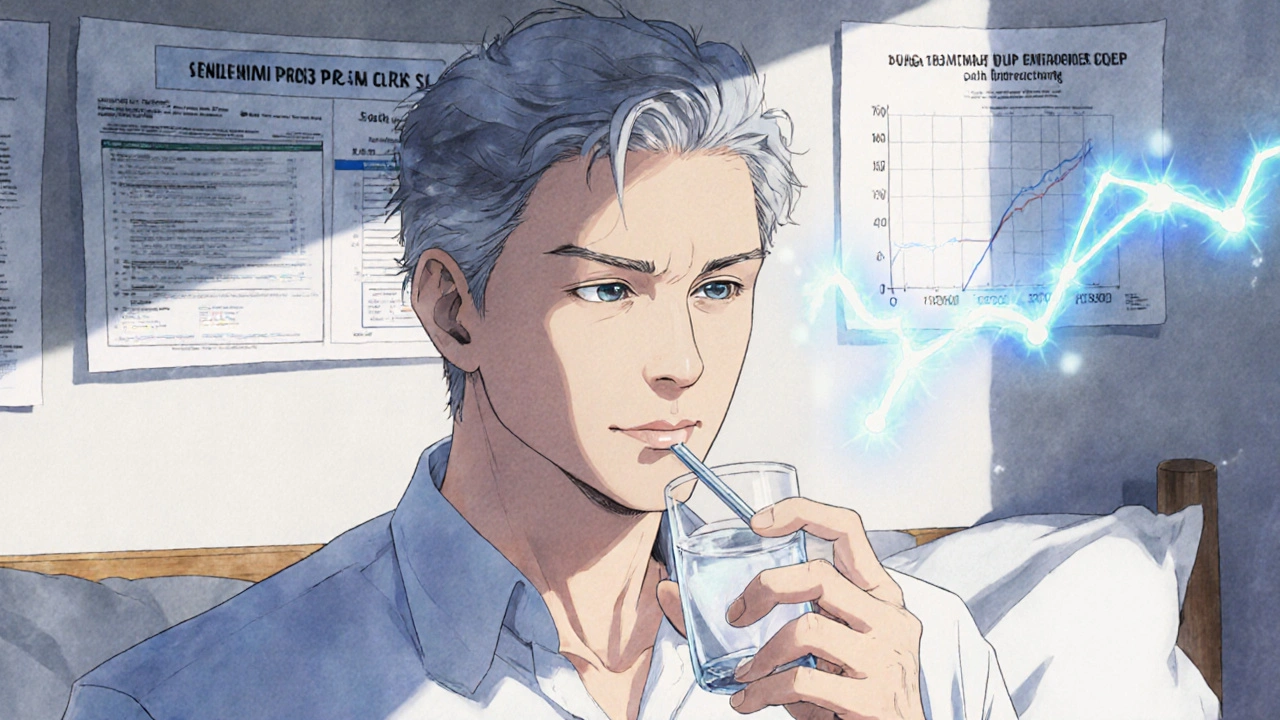Enzalutamide: What It Is, How It Works, and What You Need to Know
When you hear enzalutamide, a prescription medication used to treat advanced prostate cancer by blocking testosterone’s effect on cancer cells. Also known as Xtandi, it’s not a chemo drug—it’s a type of hormone therapy that stops cancer from growing by cutting off its fuel supply. This matters because prostate cancer often feeds on male hormones like testosterone. Enzalutamide doesn’t lower testosterone levels; instead, it blocks the receptors those hormones use to tell cancer cells to multiply.
It’s usually prescribed when the cancer has spread beyond the prostate or when other hormone treatments stop working. Men with metastatic castration-resistant prostate cancer (mCRPC) are the main group who benefit. It’s also used earlier in some cases, even before chemo, because studies show it helps men live longer and delays the need for stronger treatments. Enzalutamide works differently than older drugs like bicalutamide—it’s more powerful at blocking the androgen receptor and doesn’t let the receptor activate at all, even when small amounts of testosterone are still around.
It’s not without side effects. Fatigue, hot flashes, and high blood pressure are common. Some people report memory issues or seizures, though that’s rare. If you’re on enzalutamide, your doctor will monitor your liver function and blood pressure regularly. It’s not something you take casually—it’s a serious treatment for a serious condition, and it requires careful management.
You might wonder how it compares to other drugs like apalutamide or darolutamide. They’re all next-generation androgen receptor blockers, but each has subtle differences in how they’re dosed, what side effects they cause, and which patients respond best. Your doctor picks based on your health history, other meds you take, and how your cancer is behaving.
Enzalutamide doesn’t cure prostate cancer, but it gives men more time—with better quality. Many people stay on it for months or even years. It’s often part of a bigger plan that includes hormone shots, radiation, or sometimes chemo later on. What’s important is knowing it’s not a one-size-fits-all fix. Some men respond for years. Others see little change. That’s why tracking symptoms and test results matters so much.
Below, you’ll find real-world guides on how enzalutamide fits into cancer care—what to expect when starting it, how it interacts with other drugs, what to do if side effects hit hard, and how it compares to similar treatments. These aren’t just summaries. They’re practical tips from people who’ve lived through it, and from doctors who’ve seen what works—and what doesn’t.

The Benefits of Enzalutamide for Advanced Prostate Cancer Patients
Finnegan O'Sullivan Oct 31 8Enzalutamide helps men with advanced prostate cancer live longer and feel better by blocking testosterone from fueling cancer growth. It's taken as a daily pill, has fewer side effects than chemo, and is widely available under Australia's PBS.
More Detail